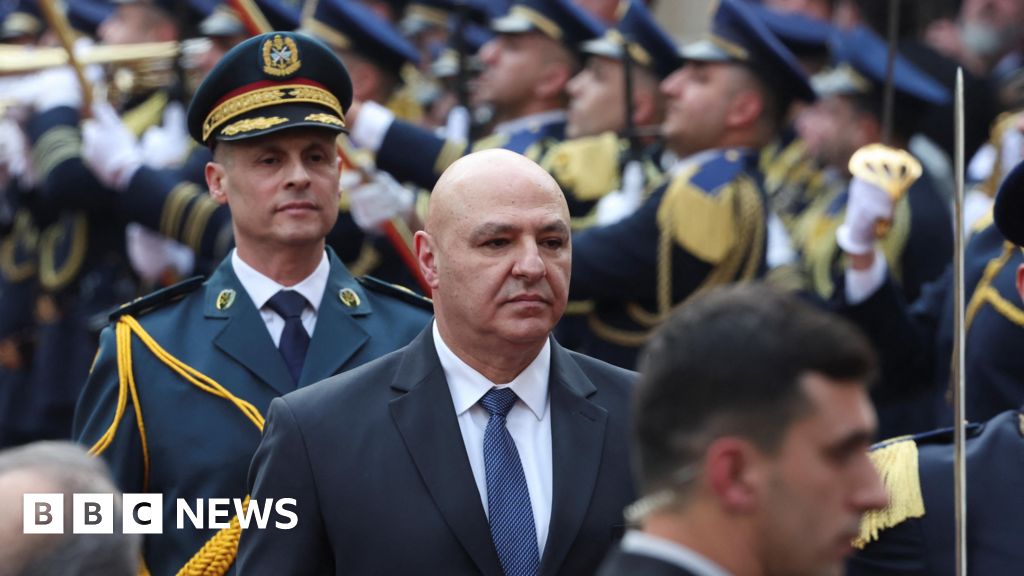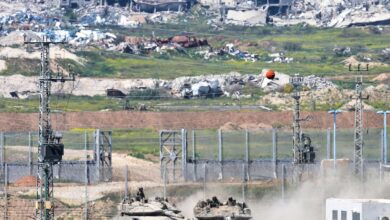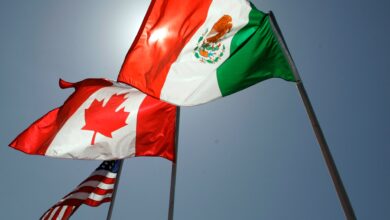Army chief elected Lebanon’s president

The Lebanese Parliament elected the army commander as the country’s president, ending a power vacuum that had lasted for more than two years.
Joseph Aoun’s nomination to this essentially ceremonial role — reserved for Maronite Christians under the sectarian power-sharing system — received support from several major political parties, as well as the United States, France, and Saudi Arabia.
The rival favored by Hezbollah, the powerful Shiite militia and political party backed by Iran, withdrew on Wednesday and endorsed the commander.
His election comes six weeks after Lebanon agreed to a ceasefire to end the war between Israel and Hezbollah, significantly weakening the group and destroying the areas it controls.
The Lebanese army, which Aoun has led since 2017, has not participated in the conflict and has a key role under the ceasefire agreement. It is required to deploy soldiers in southern Lebanon with the withdrawal of Israeli forces and to ensure that Hezbollah ends its armed presence there by January 26.
In a speech to MPs following his election on Thursday, Aoun declared that “a new phase in Lebanon’s history” had begun.
The 60-year-old pledged to work during his six-year term to ensure that the Lebanese state has the “exclusive right to bear arms” – a reference to Hezbollah, which has built a force considered stronger than the army to resist Israel. Before the 13-month conflict, in violation of the UN Security Council resolution that ended their last war in 2006.
Aoun said one of his main priorities was to repair the devastation caused by “Israeli aggression” in southern Lebanon, Beirut’s southern suburbs and the eastern Bekaa Valley during the war, which the World Bank estimates will cost $8.5 billion (£6.9 billion).
He also promised to push through political and economic reforms that are widely seen as essential in a country affected by multiple crises.
Besides the conflict between Hezbollah and Israel, they include a six-year economic recession that is one of the worst crises recorded in modern times, and the 2020 Beirut port explosion that killed more than 200 people.
As president, Aoun will not be responsible for executive decisions. However, he will be responsible for signing bills into law, consulting with political parties on the appointment of the Prime Minister and approving the government before it is presented to Parliament for a vote of confidence.
Lebanon has not had a properly functioning government since the last parliamentary elections in May 2022.
Interim Prime Minister Najib Mikati was unable to secure support to form a new government before President Michel Aoun’s term expired in October of that year, leaving his administration with limited powers.
The deeply divided parliament then failed to elect a new president on 12 occasions.
Momentum behind Aoun’s candidacy increased on Wednesday when Marada leader Suleiman Franjieh, whom Hezbollah has supported over the past two years, withdrew from the race and said the army chief had “the necessary qualifications to maintain the position of prime minister.”
In the first round, which took place on Thursday, 71 deputies voted for Aoun, 15 fewer than the two-thirds majority he needs in the 128-seat parliament. Another 37 MPs – many of them from Hezbollah and its ally, the Amal Movement – cast blank ballots, while 20 ballots were declared invalid.
Several hours later, Aoun was elected president after obtaining 99 votes in the second round, after Hezbollah and the Amal Movement supported him.
Hezbollah MP Muhammad Raad said that by delaying the elections, the group “sent a message that we are the guardians of the national consensus.”
Immediately after the announcement of the result by Speaker of Parliament Nabih Berri, television channels showed scenes of celebration across the country.
Later, Aoun appeared arriving at the Parliament building wearing a dark suit instead of a military uniform. Then he inspected the guards before entering the room to take the oath.
The UN Special Coordinator for Lebanon, Jeanine Hennis-Plasschaert, said that the elections were “a long-awaited first step towards overcoming the political and institutional vacuum in Lebanon and providing the Lebanese people with the functioning state institutions they deserve.”
She added: “A prime minister must be appointed and a government must be formed without delay. The tasks awaiting the Lebanese state are very huge and no more time can be wasted on them.”
French President Emmanuel Macron congratulated Aoun on what he described as “decisive elections” that “pave the way for reform and the restoration of Lebanon’s sovereignty and prosperity.”
The US Embassy in Beirut said it was committed to working closely with Aoun as he began his “efforts to unify the country, implement reforms, and secure a prosperous future for Lebanon.”
The Iranian embassy also sent its congratulations and said it looked forward to working with Lebanon “in a way that serves the common interests of our two countries.”
https://ichef.bbci.co.uk/news/1024/branded_news/f7a4/live/c19117b0-cea2-11ef-87df-d575b9a434a4.jpg
2025-01-09 16:53:00





